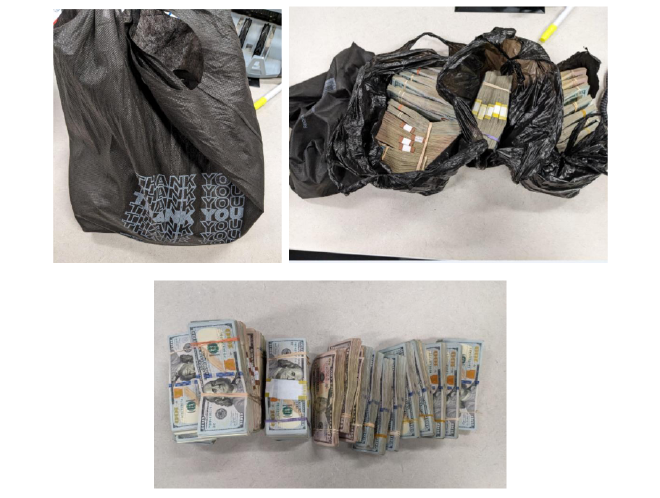FBI Informant Doxxes Crypto Cash Buyers
An FBI informant doxxed hundreds of cash buyers for the potential of less prison time, continuing to ship them cash for months after their cooperation began.
Six people were arrested in New York with alleged ties to selling cash on darknet marketplaces over the mail, and sometimes even in person.
Their alleged business/username was not revealed in the criminal complaint, strongly implying that federal law enforcement intends to continue selling cash online to further entrap unbanked crypto users.
Regulators are Squeezing Taxpayers into Danger #
Some people have a ton of cash. Others have tons of cryptocurrency.
It’s becoming increasingly difficult to use cryptocurrency for real life expenses. Crypto off-ramps are hard to find.
Across many jurisidictions, a lack of regulatory clarity is limiting people’s options to converting hard-earned cryptocurrency into fiat.
People are increasingly relying on a shadow economy of crypto-to-cash vendors online. They’re unlicensed and charge hefty fees, but are often the only options for paying real-world expenses using crypto currency. Especially if you are an immigrant or otherwise unbanked.
These cash vendors accept cryptocurrency on peer-to-peer marketplaces like AgoraDesk which provide escrow mediation. Vendors are typically honest opportunists cashing in on the widening regulatory gap, often charging upwards of a 10% fee for the risks involved.
Vendors send you carefully-packaged cash in the mail, or in some cases, hand it over in person - an extremely high-risk interaction. Sometimes they even use WhatsApp or Telegram groups with no escrow, transacting on their own reputation alone.
One such seller of paper U.S. dollars just met their feds.
Alleged Money Transmission Violations #
Lawrence Longergan, a Special Agent with the U.S. FBI, alleged in a criminal complaint filed on October 18th that a group of six people in New York were selling cash for cryptocurrency using WhatsApp.
The allegations revolve around unlicensed money transmission. In the United States, converting any form of currency into another requires an expensive license. Sending or receiving money on another person’s behalf is also considered to be money transmission. It’s a broad law that most U.S. citizens do not fully understand or consider when, say, using cash to buy cryptocurrency from a new friend at a conference.
It’s unclear how clearly the defendents understood the United States’ money transmission laws.
Crystal-clear is that they had an extremely-high risk tolerence.

Flipping sides reveals cellphone locations #
Law enforcement determined that cash was being mailed from Westchester County, New York. They arrested an individual who was responsible for mailing the packages and convinced them to cooperate against their alleged collaborators.
This cooperator claimed that they started packing and shipping cash onbehalf of the vendor around 18 months prior. They stated that various individuals delivered cash approximately three times per week in amounts ranging between $100,000 and $300,000.
Approximately 80 cash pick-ups occurred during this individual’s deception for the police, receiving a claimed total of $2,162,702 in cash.
Communications and phone numbers shared by the cooperator allowed police to subpoena cellphone tracking data and identify other alleged conspirators.
Sales of cash continued.
During the employee’s cooperation with police, customers were buying cash online and presumably still receiving their shipments. The cash deliveries to the cooperator would surely have not continued if buyers were complaining about over $2 million in lost shipments.
These online cash buyers did not know that their transactions were being logged by the U.S. federal agents. It is not known how many customers were unknowingly buying cash from a police operation.

Greed trumps OPSEC: Meetups in person #
An undercover officer referred to in the complaint as “UC-1” also built a relationship with the vendor, who was using the same username across darknet and clearnet currency exchange marketplaces.
They leveraged this relationship to start meeting up in person to convert their cryptocurrency to cash in increasingly larger amounts.
Though the vendor started selling on encrypted privacy technologies like Tor, their greed led them sacrificing OPSEC to use WhatsApp, a logged chat application owned by U.S. company Meta (Facebook).
The vendor’s usernames, chat aliases, and phone numbers were not named in the complaint.
Federal informant shipped cash for police #
As to the likely hundreds of customers whose cash shipments were logged by the FBI - is buying cash online sufficient probable cause to warrant such logging? Who will stand up for the surveilled?
The U.S.A. does not acknowledge the human right to privacy.
Benjamin Levander and Timothy Ly are prosecuting the case in the U.S. Southern District of New York.
The defendants are Shaileshkumar Goyani, Brijeshkumar Patel, Hirenkumar Patel, Naineshkumar Patel, Nileshkumar Patel, and Raju Patel, case number 6:23-cr-834-JDA.